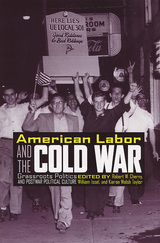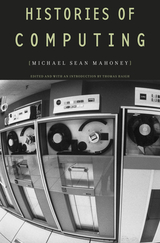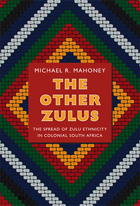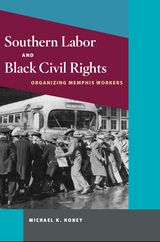
The American labor movement seemed poised on the threshold of unparalleled success at the beginning of the post-World War II era. Fourteen million strong in 1946, unions represented thirty five percent of non-agricultural workers. Why then did the gains made between the 1930s and the end of the war produce so few results by the 1960s?
This collection addresses the history of labor in the postwar years by exploring the impact of the global contest between the United States and the Soviet Union on American workers and labor unions. The essays focus on the actual behavior of Americans in their diverse workplaces and communities during the Cold War. Where previous scholarship on labor and the Cold War has overemphasized the importance of the Communist Party, the automobile industry, and Hollywood, this book focuses on politically moderate, conservative workers and union leaders, the medium-sized cities that housed the majority of the population, and the Roman Catholic Church. These are all original essays that draw upon extensive archival research and some upon oral history sources.

Computer technology is pervasive in the modern world, its role ever more important as it becomes embedded in a myriad of physical systems and disciplinary ways of thinking. The late Michael Sean Mahoney was a pioneer scholar of the history of computing, one of the first established historians of science to take seriously the challenges and opportunities posed by information technology to our understanding of the twentieth century.
Mahoney’s work ranged widely, from logic and the theory of computation to the development of software and applications as craft-work. But it was always informed by a unique perspective derived from his distinguished work on the history of medieval mathematics and experimental practice during the Scientific Revolution. His writings offered a new angle on very recent events and ideas and bridged the gaps between academic historians and computer scientists. Indeed, he came to believe that the field was irreducibly pluralistic and that there could be only histories of computing.
In this collection, Thomas Haigh presents thirteen of Mahoney’s essays and papers organized across three categories: historiography, software engineering, and theoretical computer science. His introduction surveys Mahoney’s work to trace the development of key themes, illuminate connections among different areas of his research, and put his contributions into context. The volume also includes an essay on Mahoney by his former students Jed Z. Buchwald and D. Graham Burnett. The result is a landmark work, of interest to computer professionals as well as historians of technology and science.


Winner of the Charles S. Sydnor Award, given by the Southern Historical Association, 1994. Winner of the James A. Rawley Prize given by the Organization of American Historians, 1994. Winner of the Herbert G. Gutman Award for an outstanding book in American social history.
READERS
Browse our collection.
PUBLISHERS
See BiblioVault's publisher services.
STUDENT SERVICES
Files for college accessibility offices.
UChicago Accessibility Resources
home | accessibility | search | about | contact us
BiblioVault ® 2001 - 2024
The University of Chicago Press









